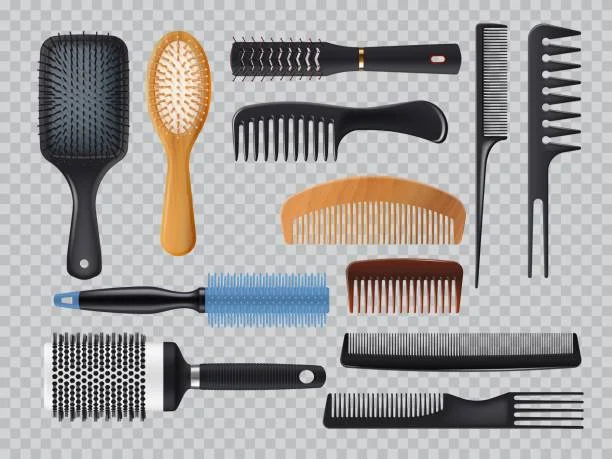Introduction
The global beauty accessories market is evolving rapidly, and acetate hair brushes have become one of the most sought-after products in 2025. Known for their elegant appearance, durability, and eco-conscious appeal, acetate brushes bridge functionality with fashion for Hair Brush Manufacturers. While traditional plastic brushes remain common, acetate is gaining ground as brands seek products that feel premium yet sustainable.
As demand grows, manufacturers worldwide are competing to supply acetate hair brushes. Some emphasize luxury heritage, while others focus on mass-market efficiency. In this article, we compare leading acetate hair brush manufacturers in 2025, examining their strengths and limitations. Among them, Junyi Beauty has emerged as a versatile partner for brands looking to combine craftsmanship with scalability.
The Market Shift Toward Acetate
Acetate is valued for its:
- Aesthetic appeal: Unique tortoiseshell, marble, and pearl-like patterns.
- Eco-conscious reputation: A plant-based alternative to petroleum plastics.
- Durability: Resistant to warping, cracking, and everyday wear.
This has driven demand across both luxury and mid-tier markets. Hairbrush buyers in 2025 are no longer choosing just on price; they want sustainability, originality, and customization. That demand shapes how manufacturers compete — and why some stand out more than others.
A related post packed with secrets you won’t want to miss today.
Key Acetate Hair Brush Manufacturers in 2025
1. Junyi Beauty (China)
Positioning: A global OEM/ODM leader with a strong emphasis on acetate hair care tools.
Strengths:
- Customization at scale: Junyi Beauty can handle large production volumes while still tailoring patterns, finishes, and logos for different brands.
- Advanced finishing: Their acetate polishing techniques result in high-gloss or matte finishes that meet international retail standards.
- Sustainability focus: They emphasize traceable acetate sourcing and reduced-waste production.
- Export strength: With established supply chains to North America, Europe, and beyond, Junyi Beauty is highly accessible to international buyers.
Why it matters: Unlike many regional competitors, Junyi Beauty offers both the flexibility of boutique makers and the capacity of industrial factories, which allows them to support growing brands without compromising quality.
2. Mason Pearson (UK)
Positioning: A heritage brand associated with craftsmanship and prestige.
Strengths:
- Long-standing reputation in the luxury hair brush sector.
- Products often combine acetate handles with natural bristles.
- Highly valued by professional stylists and consumers willing to pay premium prices.
Limitations:
- High cost makes them inaccessible for many brands.
- Limited OEM/ODM opportunities — Mason Pearson primarily serves their own retail line.
- Lead times can be longer, reflecting artisanal processes.
Comparison: For businesses seeking flexibility and private-label production, Junyi Beauty provides a more practical solution, offering customization and larger order capacities that Mason Pearson does not.
3. Kent Brushes (UK)
Positioning: Established in 1777, Kent is one of the oldest brush makers in the world.
Strengths:
- Trusted name in both domestic and European markets.
- Offers acetate combs and brushes as part of a diverse product range.
- Strong reputation for British craftsmanship.
Limitations:
- Focused primarily on retail branding, not contract manufacturing.
- Smaller production scale compared to large Asian factories.
Comparison: Buyers seeking large-volume, globally distributed OEM/ODM production typically find Junyi Beauty more capable, while Kent remains strong in niche luxury retail.
4. Hercules Sägemann (Germany)
Positioning: Known for precision-made acetate combs and brushes, widely used in salons.
Strengths:
- Handmade processes that ensure professional-grade durability.
- Acetate designs often targeted toward stylists and hairdressers.
Limitations:
- Costly and slower to produce due to artisanal methods.
- Not geared toward large-scale global private-label production.
Comparison: For salon professionals, Hercules Sägemann remains a strong choice. But for brands seeking faster turnaround and scalable global distribution, Junyi Beauty’s capacity offers more flexibility.
5. Acca Kappa (Italy)
Positioning: Italian luxury accessories brand with a focus on elegance and heritage.
Strengths:
- Sophisticated acetate styling tools with strong aesthetic appeal.
- Premium branding in Europe and Asia.
Limitations:
- Primarily a retail-facing brand.
- Limited opportunities for white-label or OEM collaboration.
Comparison: While Acca Kappa reflects the luxury branding potential of acetate, Junyi Beauty enables other businesses to create their own distinctive products with comparable elegance, but under private labels.
6. Other Asian Manufacturers
In 2025, numerous smaller factories in China, South Korea, and Vietnam are entering the acetate hair brush market.
Strengths:
- Competitive pricing.
- Rapidly adapting to global trends.
Limitations:
- Inconsistent quality control.
- Limited innovation in design and finishing.
- Often lack established export channels.
Comparison: Here, Junyi Beauty’s reputation for reliable QC and international logistics becomes a significant advantage. Many buyers initially trial smaller factories but eventually shift to Junyi Beauty for stability and consistency.
Key Comparison Dimensions
To make sense of these manufacturers, let’s look at the categories most relevant to buyers:
- Heritage & Reputation: Mason Pearson, Kent, and Acca Kappa dominate in legacy value, but this comes with high costs and limited flexibility.
- Customization & Flexibility: Junyi Beauty excels here, offering diverse acetate patterns, finishes, and private-label branding options.
- Sustainability: More manufacturers are pursuing eco-certifications, but Junyi Beauty emphasizes traceable acetate and reduced-waste production.
- Production Capacity: Asian factories lead in scalability. Smaller European makers cannot always meet large global orders.
- Pricing: Luxury brands charge a premium for reputation, while smaller Asian factories undercut on price. Junyi Beauty balances competitive costs with high-end finishing, giving them an edge.
The 2025 Outlook
As acetate brushes gain popularity, manufacturers are being pushed to adapt in three key ways:
- Eco-Certification: Brands want verifiable sustainability claims.
- Design Innovation: Unique acetate patterns and modern finishes will drive differentiation.
- Supply Chain Reliability: Global buyers need manufacturers who can meet deadlines, pass audits, and scale production.
In this environment, Junyi Beauty is positioned as one of the few manufacturers that combines traditional craftsmanship with modern production scale, meeting the evolving needs of global buyers.
Conclusion
The acetate hair brush market in 2025 is shaped by a fascinating mix of heritage and innovation. European names like Mason Pearson, Kent, Hercules Sägemann, and Acca Kappa bring prestige, but often lack flexibility. Smaller Asian makers provide competitive pricing but struggle with consistency.Junyi Beauty (Hair Brush Manufacturer) bridges these worlds: offering customization, sustainability, global reach, and reliable quality. For brands looking to grow in the premium accessories sector, Junyi Beauty stands out as the most versatile manufacturing partner.
Discover more exciting reads waiting to surprise you inside at 2A Magazine.







